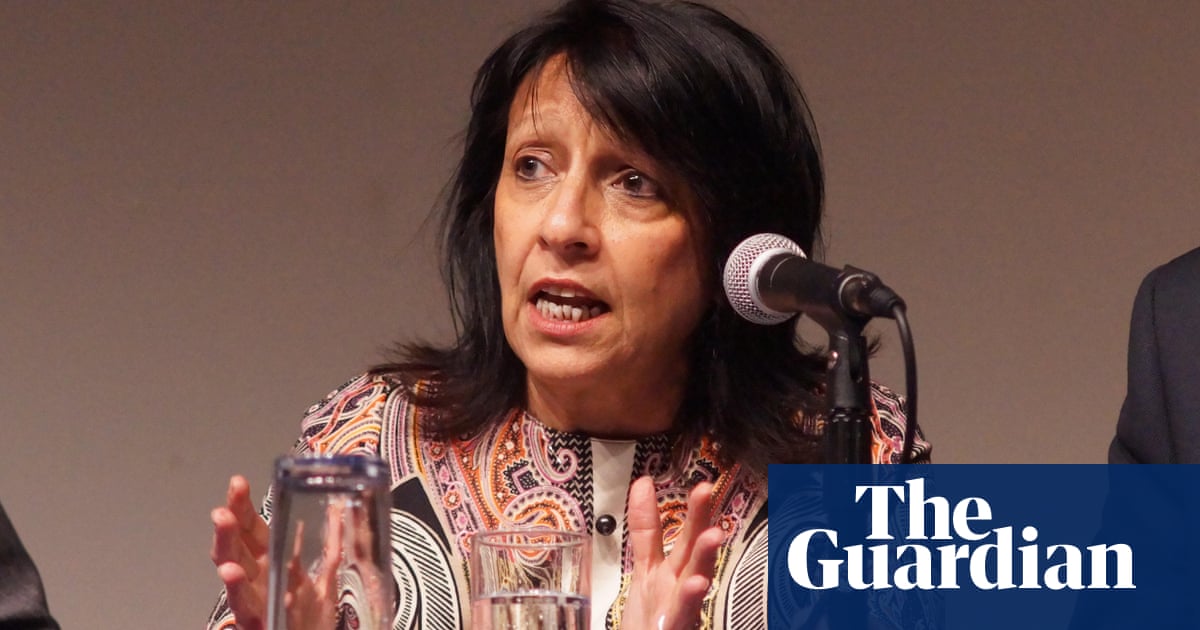
Trans rights campaigners have accused the head of the UK’s equalities regulator of “overreach” after she said trans women could be banned from women’s toilets, sports and hospital wards.
Kishwer Falkner, the chair of the Equality and Human Rights Commission (EHRC), said the ruling on Wednesday by the UK supreme court that under the Equality Act “woman” only referred to biological women was “enormously consequential”.
Lady Falkner told BBC Radio 4’s Today programme on Thursday morning the commission was working on a fresh code of practice on women’s spaces, which would have legal force, to confirm what the new rules would be.
“We are going to have a new statutory code of practice, ‘statutory’ meaning it will be the law of the land, it will be interpreted by courts as the law of the land. We’re hoping we’re going to have that by the summer,” she said.
She said the court’s judgment meant only biological women could use single-sex changing rooms and women’s toilets, or participate in women-only sporting events and teams, or be placed in women’s wards in hospitals.
Jane Fae, the director of the campaign group TransActual, said Falkner was “overreaching” in her remarks because in the case of toilet provision, as one example, the tradition in the UK was more complicated than every facility being single sex.
“Loos don’t have genetics, they don’t have biology”, she said. Under the law, an organisation’s approach to providing shared or single-sex services still had to be “fair and proportional”, she said.
Fae said the supreme court ruling had caused significant damage to trans inclusion.
It also, she said, “stripped away [our] protections to the bare minimum” by reducing the legal protections only to cases involving harassment, discrimination or equal pay.
She said trans advocates and campaigners would need to find specific legal cases to test whether the EHRC’s interpretation of the court’s judgment was correct, to reassert their rights. Some could go to the supreme court or to the European court of human rights.
Fae and Vic Valentine, from Scottish Trans, another campaign group, said they feared many trans men and women would “go underground” by stopping using public services or by making themselves less visible to avoid conflicts.
Valentine said they were “pretty worried” about Falkner’s interpretation of the court ruling. “The ramifications of that, in terms of trans people’s ability to use services, spaces, participate in public life, are enormous.
“You just need to think about the enormous range of facilities where the only options available to you are single sex.” For visible trans people, this ruling could “amplify” hostility towards them – a situation Falkner said the commission “will not tolerate”.
Valentine said: “I certainly think it will be possible to run trans-inclusive services. Perhaps how you describe your service or talk about the people you provide your service to will have to look a bit different in the future.”
Susan Smith, a co-founder of For Women Scotland, the group that won the supreme court case on Wednesday, said Falkner’s approach was correct.
Smith said the overreach had come from trans groups and public services that wrongly interpreted the law, including in the previous statutory guidance issued by the commission.
“This only became an issue because they began to push very, very hard on women’s spaces. It really wasn’t quibbling about toilets [it was] for women in need of single-sex spaces for often devastating reasons, where they were vulnerable or required intimate care,” she said.
Those included rape crisis centres or gynaecological examinations. At the same time, she said, some trans activists became more aggressive and provocative in women’s spaces. “If people could have been a little bit more sensible, this wouldn’t have happened.”
Source: theguardian.com

















